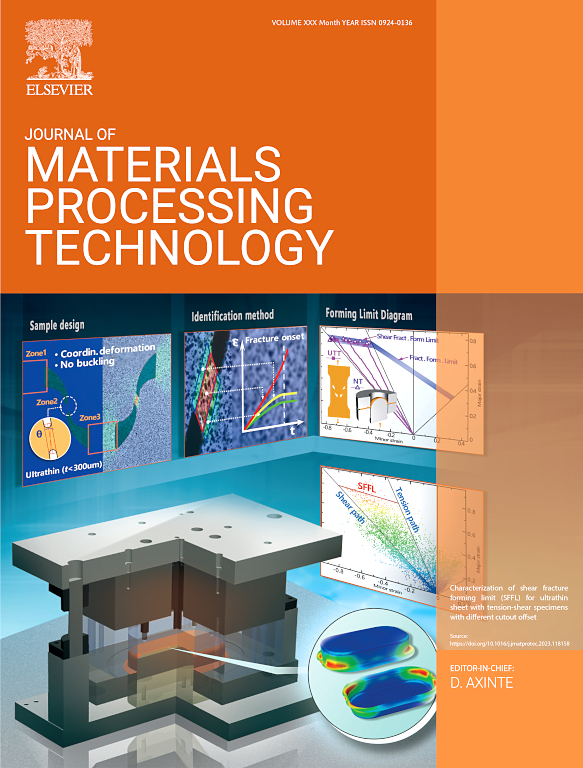Residual stress engineering for highly loaded rolling-sliding contacts: Finding the sweet spot for maximum durability by hard turning and deep rolling
IF 7.5
2区 材料科学
Q1 ENGINEERING, INDUSTRIAL
Journal of Materials Processing Technology
Pub Date : 2025-08-12
DOI:10.1016/j.jmatprotec.2025.119027
引用次数: 0
Abstract
The durability of highly loaded rolling-sliding contacts, such as those in rolling bearings, is critically determined by subsurface microstructure and residual stresses engineered during manufacturing. This study systematically investigates the interplay between thermal and mechanical process parameters during deep rolling, using bearing inner rings as a representative example, to identify optimal conditions for maximizing fatigue life. By isolating the effects of process temperature (20–400 °C) and deep rolling pressure (200–400 bar), we demonstrate that moderate mechanical loading at room temperature can more than double bearing life through beneficial compressive residual stresses, while excessive pressure or thermal input above 200 °C sharply reduces durability. Notably, we reveal a previously unrecognized mechanism of hidden thermal degradation that limits lifetime, even when conventional hardness or microstructural metrics remain unchanged. These results define a process window for residual stress engineering in bearing steels and provide generic guidelines for hybrid manufacturing of rolling-sliding components subjected to severe tribological loading. The findings advance fundamental understanding of process-induced fatigue mechanisms and offer a framework for the rational design of subsurface-optimized, durable, and sustainable machine elements.
高负荷滚动滑动接触的残余应力工程:通过硬车削和深轧找到最大耐用性的最佳点
高负荷滚动滑动接触(如滚动轴承中的接触)的耐久性在制造过程中由地下微观结构和残余应力工程决定。本研究以轴承内圈为代表,系统地研究了深滚过程中热、机械工艺参数之间的相互作用,以确定最大化疲劳寿命的最佳条件。通过隔离工艺温度(20-400°C)和深滚动压力(200 - 400 bar)的影响,我们证明室温下适度的机械载荷可以通过有益的压残余应力使轴承寿命增加一倍以上,而超过200°C的过度压力或热输入会大大降低耐用性。值得注意的是,我们揭示了一个以前未被认识到的隐藏热降解机制,即使在常规硬度或显微结构指标保持不变的情况下,它也会限制使用寿命。这些结果为轴承钢的残余应力工程定义了一个工艺窗口,并为承受严重摩擦载荷的滚动滑动部件的混合制造提供了通用指南。这些发现促进了对过程疲劳机制的基本理解,并为合理设计地下优化、耐用和可持续的机械元件提供了框架。
本文章由计算机程序翻译,如有差异,请以英文原文为准。
求助全文
约1分钟内获得全文
求助全文
来源期刊

Journal of Materials Processing Technology
工程技术-材料科学:综合
CiteScore
12.60
自引率
4.80%
发文量
403
审稿时长
29 days
期刊介绍:
The Journal of Materials Processing Technology covers the processing techniques used in manufacturing components from metals and other materials. The journal aims to publish full research papers of original, significant and rigorous work and so to contribute to increased production efficiency and improved component performance.
Areas of interest to the journal include:
• Casting, forming and machining
• Additive processing and joining technologies
• The evolution of material properties under the specific conditions met in manufacturing processes
• Surface engineering when it relates specifically to a manufacturing process
• Design and behavior of equipment and tools.
 求助内容:
求助内容: 应助结果提醒方式:
应助结果提醒方式:


